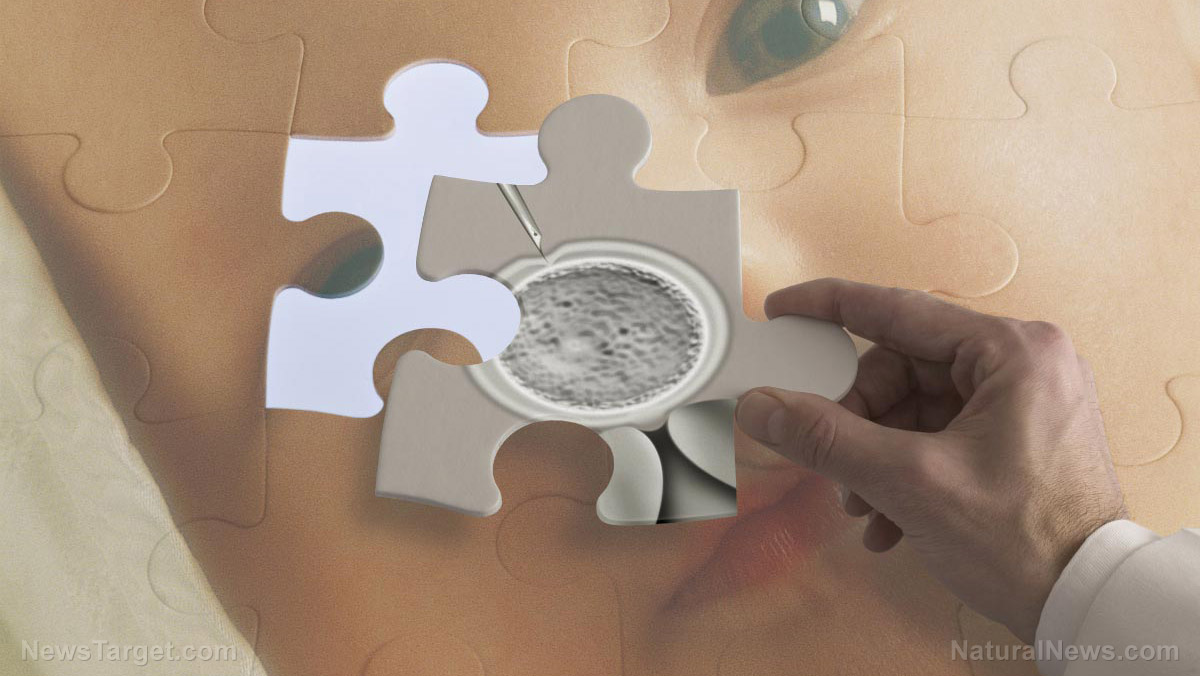Game-changing research reveals that parental experience is epigenetically imprinted onto 14 successive generations
01/14/2019 / By Tracey Watson

We all know that we inherit certain specific genetic characteristics from our parents and that these are indelibly written in our DNA code. These genetic traits determine everything from the color of our eyes to whether or not we have dimples. Unfortunately, certain genetic diseases like cystic fibrosis and hemophilia can be passed down from generation to generation in the same way.
Many of us believe that there is nothing we can do to alter our genetic programming and that the only way to absolutely avoid passing certain undesirable traits on to future generations would be to avoid having children entirely.
In reality, however, it is not only what is permanently written in our DNA that can affect future generations. An interesting field of scientific study called epigenetics has found that lifestyle and environment can impact gene expression for a number of successive generations. In fact, a study by researchers from the European Molecular Biology Organization in Spain, published in the journal Science in 2017, found that parental experience is epigenetically imprinted not just on immediate children but on up to 14 successive generations.
This research reinforces the importance of the lifestyle choices we make every day, knowing that these will continue to impact our children and our children’s children for generations to come. Ultimately, nurture is at least as important as nature when it comes to determining the health of successive generations. (Related: Poor diet and lifestyle choices increase early mortality risk by 250%.)
A weighty responsibility
For their study, the research team used genetically engineered nematode worms that contain a special transgene that allows them to glow under ultraviolet light in warm temperatures. When kept at temperatures below 20°Celsius (68° Fahrenheit) the worms hardly lit up at all, but as soon as they were moved to an environment warmer than 25°C the fluorescence gene became far more active, making them light up brightly. After spending some time in the warmer environment, the worms were moved back to the cooler temperature to determine the impact on their fluorescence.

Science Alert reported on the results:
Surprisingly, they continued to glow brightly, suggesting they were retaining an ‘environmental memory’ of the warmer climate – and that the transgene was still highly active.
Furthermore, that memory was passed on to their offspring for seven brightly-glowing generations, none of whom had experienced the warmer temperatures. The baby worms inherited this epigenetic change through both eggs and sperm.
The team pushed the results even further – when they kept five generations of nematodes at 25° C (77° F) and then banished their offspring to colder temperatures, the worms continued to have higher transgene activity for an unprecedented 14 generations.
Adam Klosin, one of the study’s authors, explained that while the team could not be sure why this epigenetic “programming” was handed down through so many generations, it appeared to be some type of “biological forward-planning.” (Related: Epigenetics discoveries challenge outdated medical beliefs about DNA, inheritance and gene expression.)
Tanya Vavouri, another member of the team, added, “Worms are very short-lived, so perhaps they are transmitting memories of past conditions to help their descendants predict what their environment might be like in the future.”
The results of this study make it clear that genetic inheritance should not only be viewed as something we get from our parents, but rather as a gift or burden we will hand on to multiple generations that come after us. We, therefore, carry a weighty burden of responsibility when it comes to the lifestyle choices we make and environments we immerse ourselves in. Learn more about improving your own health and securing that of future generations at Longevity.news.
Sources include:
Submit a correction >>
Tagged Under:
breakthrough, DNA, environment, epigenetics, future generations, genes, genetics, inheritance, legacy, lifestyle, mind body science, parental experience, research, scientific
This article may contain statements that reflect the opinion of the author





















